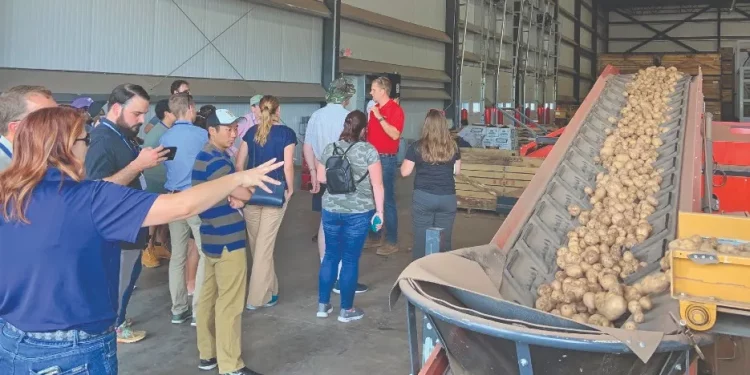Despite all the changes the nation has experienced during this pandemic, the U.S. potato industry remains as committed as ever to fighting for federal policies that protect our businesses, our families, and the communities we support.
When I took over as the 2022 President of National Potato Council (NPC) in February, I reflected on the hard work that got us here. My desire is to use the momentum we have built — despite a global pandemic — to leave NPC and the entire industry in a stronger position than any of us could have anticipated.
Whether it is in trade, nutritional regulations, environmental policies, or labor rules, we have seen firsthand what we can do as an industry when we stand together.
Fighting for Fair Trade
As the former NPC Vice President of Trade Affairs, I’ve spent years immersed in the details of our country’s trade agreements, including the recently adopted United States-Mexico-Canada Agreement (USMCA). However, one longstanding dispute with Mexico has preoccupied the industry for literally decades. That country has all but closed its borders to U.S. fresh potatoes for the past 25 years, despite trade pledges to the contrary.
There may be light at the end of the tunnel, however. In early April, U.S. Secretary of Agriculture Tom Vilsack met with Mexico Secretary of Agriculture and Rural Development Victor Villalobos in Mexico to discuss their shared priorities, including agriculture trade. Most notably for the U.S. potato industry, the secretaries jointly announced the two countries had concluded all necessary plant health protocols and that the entire Mexican market would be open in mid-May for all U.S. table stock and chipping potatoes.
As of this writing in early May 2022, we are waiting to see if Mexico finally lives up to its obligations. Once it does, we can finally realize the full potential of this expanded market.
All told, the U.S. potato industry estimates that full access to Mexico could provide a market potential of $150 million per year in five years for U.S. potatoes. Thereby increasing global fresh potato exports by more than 10% and supporting thousands of direct and indirect American jobs in the process.
Disaster Relief
Based on the final data, more than $350 million in federal assistance supported the potato industry throughout the pandemic through the work of NPC and our state partners. We were able to deliver the largest federal disaster support ever provided to the potato industry. This happened through programs like the Coronavirus Food Assistance Programs, the Farmers to Families Food Box programs, USDA purchasing surplus potatoes, and other federal programs.
Now, as the country and the world reopen, we are hoping we can return to advocating for a proactive policy agenda that is fighting for a brighter tomorrow.
Easing Supply Chain Challenges
The U.S. potato industry depends on an efficient transportation system in moving product from the farm through the supply chain to the end consumer. Unfortunately, current supply chain disruptions are creating severe shortages of vital inputs for potato production and inflating prices for those fortunate producers who can secure supply.
NPC has identified several specific regulatory and legislative actions that could assist in relieving some of the current bottlenecks that are severely impacting producers, including removing burdens on truck drivers and easing regulatory impediments on shippers.
Addressing Workforce Challenges
Anyone in the specialty crop industry is aware of the challenges of finding labor to plant and harvest crops. To address the crisis, last year the House of Representatives passed the NPC-supported bipartisan Farm Workforce Modernization Act, sponsored by Congressman Dan Newhouse. It was the second time the bill passed in consecutive sessions of Congress. NPC and our partners in the Agriculture Workforce Coalition are now encouraging the Senate to improve upon that bill and create the opportunity to secure a long-term fix to this crisis.





